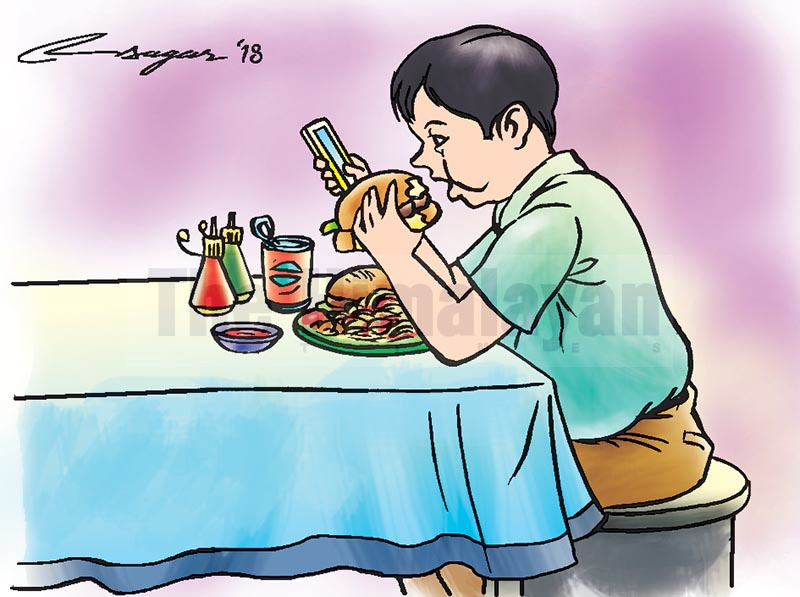Sedentary lifestyle taking a toll on Nepalis
- Women prone to obesity
- Men susceptible to high blood pressure
Kathmandu, November 22
Sedentary lifestyle is taking a toll on the health of both men and women. More men suffer from high blood pressure, while women are more prone to obesity.
These are the findings of the Nepal STEPS Survey-2019 carried out by the Ministry of Health, Nepal Health Research Council and the World Health Organisation. STEPS is a population-based household survey of non-communicable diseases conducted among people aged 15 to 69 years. A total of 5,593 people took part in the latest survey.
The study found that 29.8 per cent of the male respondents were suffering from high blood pressure. The share of female respondents with high blood pressure stood at 19.7 per cent. More men also suffered from high blood sugar. At least 6.3 per cent of male respondents were detected with high blood sugar level compared to 5.3 per cent of female respondents, according to Dr Meghnath Dhimal, chief research officer at Nepal Health Research Council.
“Higher intake of alcohol and tobacco, stress and higher consumption of salt are some of the reasons for prevalence of high blood pressure and sugar among men,” said Dr Dhimal. “Men need to shun sedentary lifestyle to avoid contracting such diseases.”
Sedentary lifestyle is also taking a toll on women’s health, as more female respondents were found to be obese. At least 5.3 per cent of the female respondents were suffering from obesity compared to 3.2 per cent of the male respondents, the report said. “Less physical activity is the reason for obesity,” said Dr Dhimal.
Women were also prone to joint and back pains. At least 20.1 per cent of the women surveyed reported pain, stiffness or swelling in or around joints despite suffering no injury. The pain, stiffness or swelling lasted for over a month. The ratio of men suffering from joint pain stood at 13.6 per cent.
The prevalence of back pain was also higher among women with 22.8 per cent of them complaining of the problem. Only 14.5 per cent of the male respondents reported back pain.
“Women carry heavy items such as utensils filled with water, doko (bamboo basket) filled with goods and similar other items. This may be the cause of joint and back pain in women,” said Dr Dhimal.
More women were also found to be suffering from severe headache, which prevented them from doing regular household chores and going to work. At least 19.2 per cent of the female respondents complained of severe headache compared to 10.7 per cent of male respondents.
The survey was conducted from February to May during which socio-demographic and behavioural information, such as physical activity and intake of tobacco, alcohol and food, was also collected.






